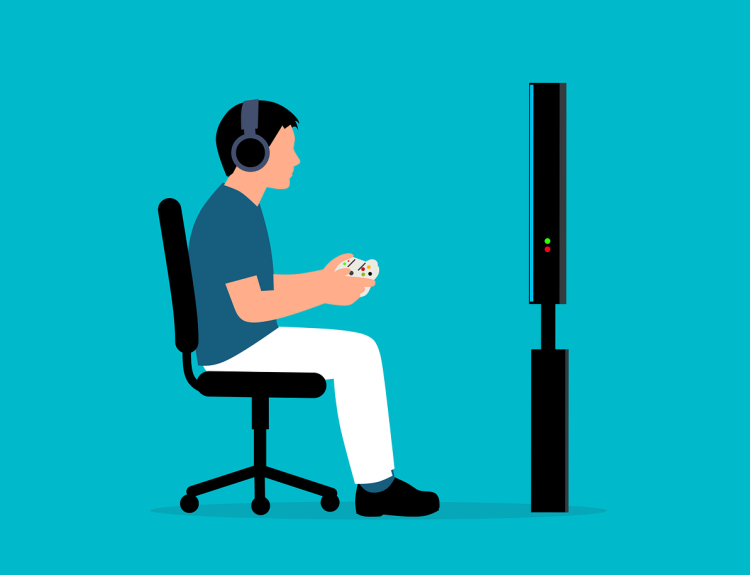Esports is currently among the most rapidly developing extracurricular activities among high school students worldwide.
A major that was previously treated as a mere hobby has become a highly competitive arena, having organized leagues, scholarship programs, and career advancement. To the gamers, who are teenagers, being a member of an esports league is much more than the opportunity to play favorites.
It not only exposes one to higher education but also pto rofessional life in the gaming industry by teaching teamwork, communication, and strategic thinking. Esports is their ideal combination of competition, creativity, and community for many students.
What Are High School Esports Leagues?
In order to have a clear picture of why high school esports leagues matter, one should think bigger. Similar to basketball or football, esports also have structured games, team training, and professional coaches who lead the players on the way to their progress.
These are not limited to gaming skills. Players gain leadership skills and experience the necessity to work in a team during stressful situations, as well as improve their problem-solving skills.
Moreover, universities and colleges are becoming more aware of the importance of esports, providing scholarships to the most promising participants and developing courses focused on the digital competition. This puts high school esports as a great way forward for those students who wish to continue with their education, and at the same time enjoy the game.
Criteria for Choosing the Right League
Some factors come into play when deciding on the league to be a member of. In the case of students and schools, attention must be paid to the variety of games because some leagues prefer the games that are popular in the market: League of Legends, Rocket League, or Valorant, and others allow a wider range of games.
The intensity of the competition is also a factor, as certain leagues are made up of casual players intending to learn and grow, whereas others are stronger and aimed at students having greater goals. Neither is inclusivity, which the most successful leagues are more focused on, diversity and offering every player a chance to play.
There may also be a disparity in the cost basis based on the league, where some of the leagues may incur a participation fee, whereas others may be sponsored or subsidized. Finally, selecting the appropriate league is a matter that is conditional on balancing these variables with the interests of the student, the resources of the school, as well as the support of the teachers or parents.
Top High School Esports Leagues for 2025
By 2025, a few esports leagues in high schools can be considered the most promising regarding the opportunities students have to compete.
The High School Esports League (HSEL) is one of the most established organizations that has become a platform in North America. HSEL has a substantial variety of games, such as Overwatch 2, Minecraft, and Super Smash Bros., and focuses on the provision of a welcoming space to students of every level.
The other organization is PlayVS, which has been collaborating with state athletic associations to officially recognize esports as a high school sport in most areas. Specifically, PlayVS is characterized by its formalized seasons and close connection with colleges, which is why it is the best option when students want to win a scholarship.
The North America Scholastic Esports Federation (NASEF) is another association that can be noted because of its unconventional approach of combining competitive gaming and educational purposes. NASEF not only hosts tournaments, but also incorporates lessons about digital citizenship, career development, and media literacy, to enable students to acquire skills outside the game.
In the meantime, smaller regional leagues exist (e.g., state-based high school esports associations) that provide a more localized competition and community building, which is particularly useful when schools are only starting with esports. All the leagues have various requirements, such as registration of the team at schools, individual registration, and the price varies according to the level of competition and sponsorship.
How to Get Started?
Entering esports can be a challenging task, but it is much simpler than one might think. It is important to note that, in the majority of cases, students start by looking to establish whether their school has an esports program.
In case of existence, the next approach would be to participate in tryouts or team meetings so that they can demonstrate their abilities and devotion. In non-program schools, students may initiate a team with the help of a teacher or administrator by asking to start one, usually with the assistance of league representatives who have resources that help in new programs.
The process of a team includes hiring players, a coach or an advisor, and enrolling in the selected league. Technologically, students require a minimum gaming experience, which consists of a decent PC or console, high-speed internet, and basic peripherals such as a headset and a controller.
Although the costly equipment may boost performance, most of the leagues are affordable, such that the students do not have to spend a fortune to be able to start.
Success Stories and Opportunities of High School Esports Leagues
The possible benefits of playing in a high school esports league are short-term and long-term. We are still hearing about success stories of students who began in local leagues and were able to get college scholarships (or even professional contracts).
The movement of varsity esports has spread to universities throughout North America, and scholarships are being offered to players endowed with talent more often.
On top of competitive gaming, esports provides opportunities for jobs in broadcasting, event management, coaching, and game design. Joining a league besides provides the students with a gaming experience, but they are also equipped with skills that can be applied in real life.
Conclusion
Since esports is going to keep growing, one should not perceive it as a distraction but a legitimate extracurricular activity that has educational and developmental benefits. Participating in an esports league in high school gives students the opportunity to integrate passion and purpose and learn skills that will be useful in and out of the gaming community.
The esports landscape is changing at a very rapid pace, and high school students are given an inimitable chance to join the dynamic movement from the ground up. Regardless of their goals of scholarship, career rivalry or just a pleasant experience of playing with their friends in an organized environment, esports has offered a healthy and progressive outlook to the youth of these times.
To sum up, esports leagues in high schools are not only gaming clubs. They are a contemporary way of engaging in extra-curricular activities, providing competition, development and an avenue to students of any background. H
High school players will be able to improve their skills, develop life-long relationships, and pave their way to a successful future by joining one of the best leagues in 2025. As a student who loves gaming, it is not only worth trying by any means, but it might result in the beginning of a great new adventure.
Ready to level up your future beyond the game?
The Finance Gig, we break down the money side of esports, scholarships, and career opportunities so you can turn your passion into purpose.






